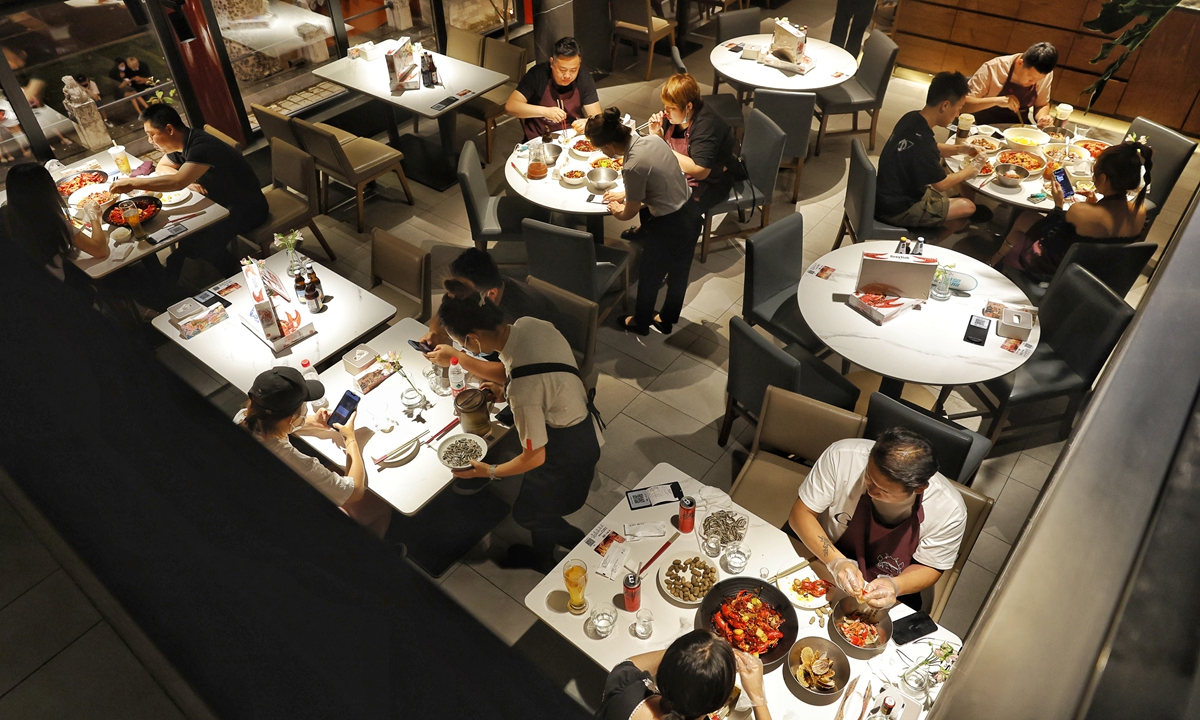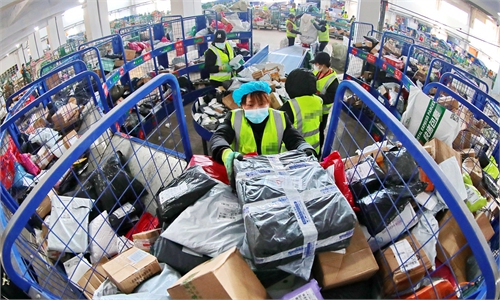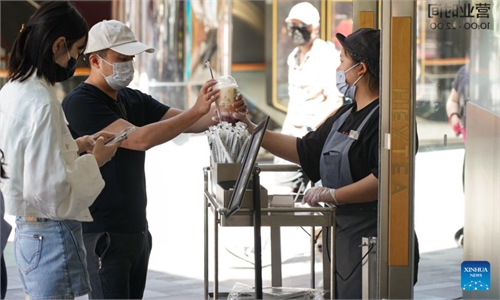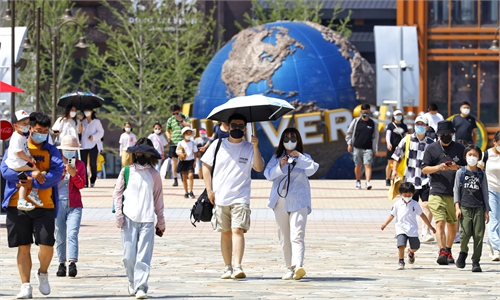Beijing issues 100 million yuan coupons to boost consumption
Services recovery generally faster than 2020, but tourism lag

A trending restaurant in Beijing filled with customers on June 6, 2022 as the city resumed dine-in services at midnight. Photo: Li Hao/GT
As the latest example of Chinese cities' efforts to boost spending after a ferocious wave of coronavirus flare-up, China's capital Beijing on Monday started a large-scale promotional campaign by issuing about 100 million yuan ($14.83 million) worth of dining consumption coupons to local customers, according to a report by Beijingetown.
Such stimulus measures played an important role in pushing China's consumption to rise in June after a deep drop in the previous month, experts said, although they called for more measures, such as precise COVID-19 prevention, to stimulate a faster rebound in catering business.
At 10 am each day starting from Monday, Beijing will issue dining consumption coupons called "happen reunion" to local customers. The coupon has two types - take-out food and on-site dining, the report noted. Besides, the city also issued a special coupon that gives discounts to elderly and disabled people.
According to the Beijingetown report, more than 70,000 catering businesses participated in the campaign, including fast food outlets, hotpot restaurants, bakeries, beverage vendors and other shops. Many popular online food delivery platforms like Meituan and ele.me participated in the event.
One Beijing resident surnamed Song told the Global Times on Monday that she was quite satisfied with the coupons promotion.
"One meal I often order costs about 40-42 yuan at ordinary times. Today it cost only 35 yuan after I used the coupon," Song told the Global Times on Monday. "I am thinking of ordering another big meal tonight using the 100 minus 30 yuan coupon," she said.
The promotional activity is the latest example of Beijing's efforts to rekindle local people's consumption passion after the city was hit by a resurgence of coronavirus. According to a report sent by ele.me to the Global Times, the platform launched a promotional campaign from mid- to late July to give a maximum of 100,000 free take-out orders to Beijing customers.
Meanwhile, China announced the second batch of national-level cluster areas for night culture and tourism consumption on Monday. Several Beijing tourism sites including the Wangfujing Street were included in the list, cnr.cn reported.
Beijing is among a batch of Chinese cities that rolled out coupons to stimulate spending. Since April, 23 Chinese provincial-level regions have issued about 40 rounds of consumption coupons that promoted marketing of cars, electric appliances, food and so forth, according to a report of Jimu News on May 26.
Shanghai, another megacity severely battered by COVID-19 in April and May, announced in late May plans to encourage online platforms and large e-commerce companies to issue consumption coupons as a part of its economic stimulus package that contained 50 measures.
Experts said that promotional measures like coupons are among the most efficient ways to boost consumption, along with measures like tax cuts or service innovation, though it's hard to quantify how much incremental spending will be triggered by issuing coupons.
The ele.com report showed that some businesses' orders surged by 20-40 percent after taking part in the "free takeout" campaign.
China's domestic consumption continued to rebound in recent weeks. In June, retail sales rose by 3.1 percent, compared with a 4.4 percent drop in May, data from the National Bureau of Statistics said.
Veteran macroeconomist Dong Shaopeng told the Global Times on Monday that a consumption rebound is in line with his expectations, but certain sectors, like tourism and dining, should have rebounded better.
"The key to recovering consumption is making pandemic control and prevention 'precise' so that people wouldn't be afraid of spending and having activities outdoors," Dong said, adding that a lot of work could be done, such as making trans-regional COVID-19 data uploading more efficient.
He predicted that China's consumption sector could rise by about 6 percent in the second half of 2022.
According to a report compiled by Guosen Securities, judging from recently released economic data, China's post-COVID-19 services recovery in 2022 had a pace similar to 2020, but the recovery speed was faster than in 2020 as people's fear of the pandemic dwindled significantly.




